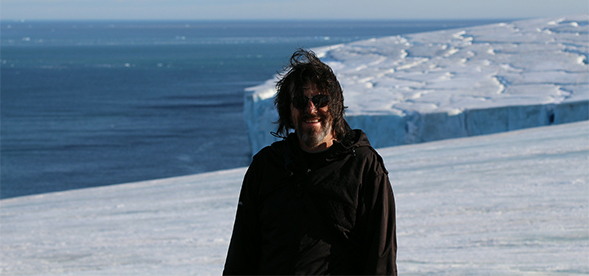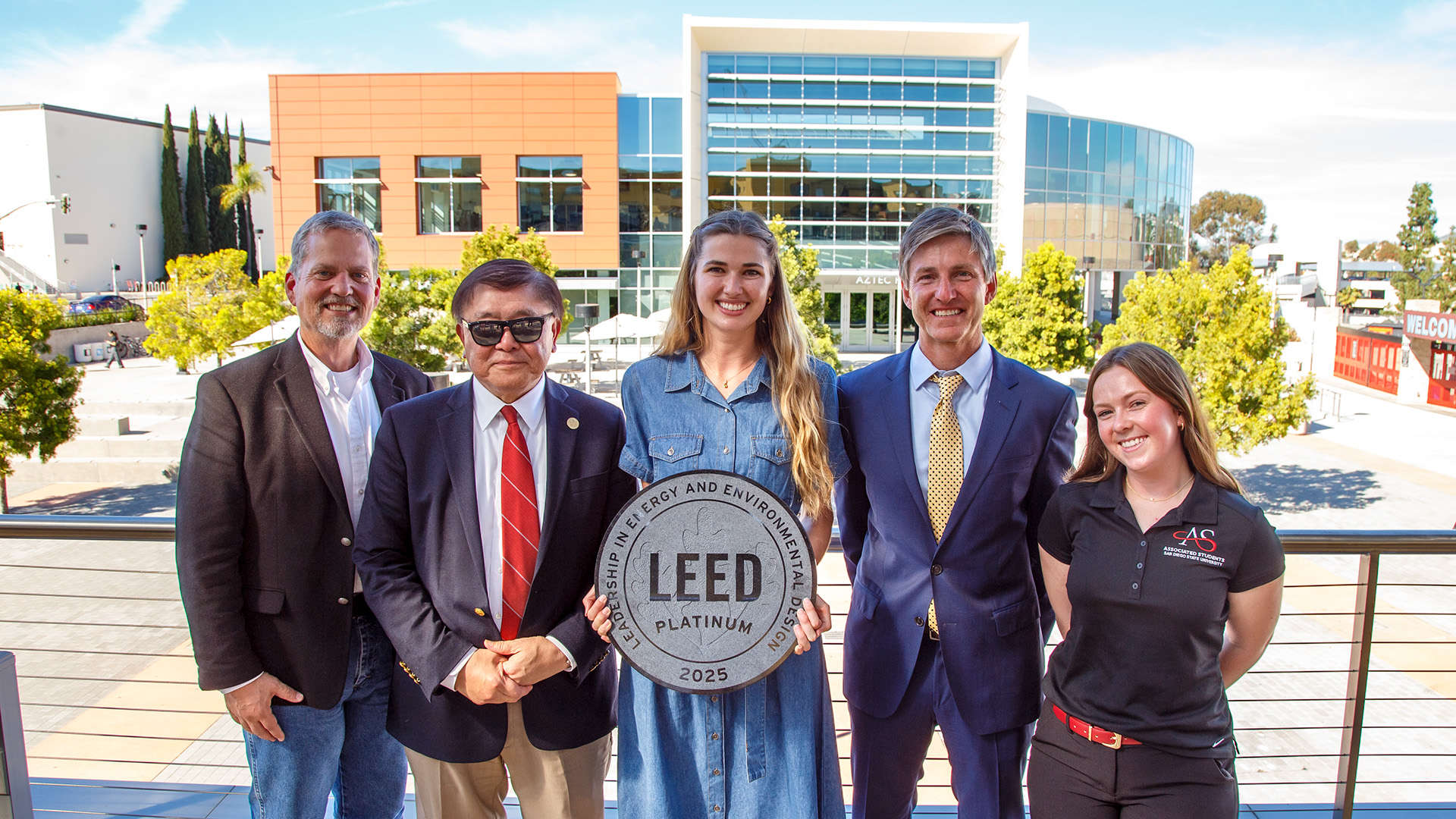Continuing Along the Path toward Excellence
Now a year old, SDSU's Areas of Excellence are conducting cutting-edge research and bringing in talented new faculty.

In recent months, scientists at San Diego State University have discovered a new virus present in the guts of more than half the world’s population. They’ve discovered that there’s more “cross-talk” among brain regions in people with autism. They have made major improvements to models of the earth’s climate. And they are using Twitter and other social media platforms to monitor public health and reactions to natural disasters.
These successes and several others have been accomplished by researchers working in SDSU’s Areas of Excellence. Last year, SDSU identified four research enterprises at the university that are notable not only for their success in advancing the state of their particular science, but also for their interdisciplinary nature and for their potential to contribute to critical global issues. The Areas of Excellence are now a year old, and their goals and ambitions are beginning to take shape. Here’s a look at what SDSU’s Areas of Excellence have in store for the coming year.
Climate and Sustainability Studies — This area, led by mathematics professor Samuel Shen and ecology professor Walter Oechel, has added one new faculty member, atmospheric scientist Bo-Wen Shen, and plans to add one more before the semester is over. Next year, Shen said there will be two additional hires: a paleoclimatologist and a geographer specializing in regional climate models.
The new faculty’s particular expertise will boost’s SDSU’s ability to produce accurate climate models for the earth’s surface, taking into account change over time and specific regional variables.
“Our research capacity has been upgraded significantly,” Shen said.
With better climate models, researchers and policymakers can better predict sweeping weather changes and better prepare against the potential harms of climate change.
Clinical and Cognitive Neuroscience — This Area of Excellence is led by linguistics researcher Karen Emmorey and psychologist Sarah Mattson and has recently produced theCenter for Clinical and Cognitive Neuroscience and hiredcognitive psychologist Ksenija Marinkovic. She will join SDSU’s other brain researchers in their mission to improve public health outcomes for people with neurodegenerative diseases and developmental disorders, as well as further exploring the neural circuitry underpinning of deafness.
Beginning in October, the Center will host a series of expert speakers on a variety of neuroscience-related topics. Watch their website for more information when it becomes available.
Human Dynamics in the Mobile Age — Geography professor Ming Tsou, director of the Center for Human Dynamics in the Mobile Age, said his Area of Excellence’s main goal has been adding “new blood and new ideas.”
To that end, it hired geography professor Nara Atsushi and public health researcher Eric Buhi to bolsterthe core of researchers dedicated to studying how social networks and mobile connectivity affect—and are affected by—natural disasters, public health threats and other wide-scale issues.
The Center will also continue to host its series of “lightning talks.” The talks last for no longer than 10 minutes each and are designed to identify areas for interdisciplinary collaboration among SDSU researchers.
Viral Information Institute — New hire Antoni Luque will bring his expertise in biophysics and computational science to this highly productive Area of Excellence, which is led by biologists Forest Rohwer, Anca Segall and Robert Edwards. Last year, researchers at SDSU, in collaboration with several global colleagues, developed a new technology for singling out important individual genomes among massive, comingled metagenomes.
The technology, called cross-assembly, led to the discovery of a previously unknown yet widely distributed gut virus known as crAssphage that could play an important role in obesity and diabetes. In the coming year, SDSU researchers will continue to use the cross-assembly technique to refine their knowledge of the viruses present in humans and marine ecosystems to better understand how viruses influence the health of their hosts. Of particular interest to the researchers are viruses known as phages, which replicate within bacteria.
In 2015, SDSU will host the Year of the Phage consisting of an academic conference as well as several events and meetings to commemorate the 100th anniversary of the discovery of phages. SDSU phage researchers will also team up with SDSU artists and musicians to create new ways of visualizing and thinking about these critical, yet poorly understood, life forms.



